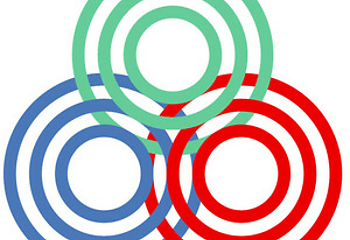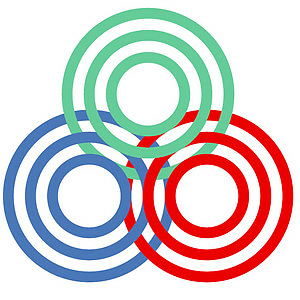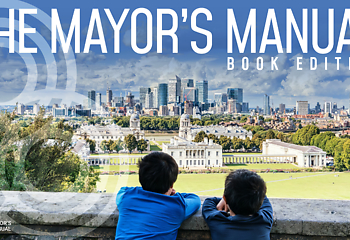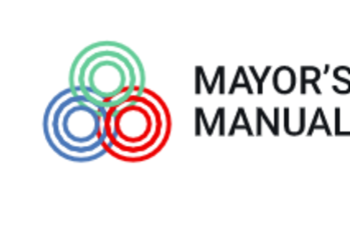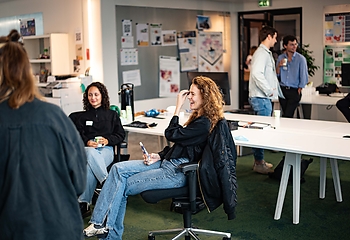In this short Living lab mini-series, we talk to students who are working on innovative solutions for urban challenges. With a fresh view and interdisciplinary approach, they make the connection between practice and science. Listen to 9 episodes.
What is a living lab and what can we learn from it? Besides leaders from the market, government and knowledge institutions, students from the MADE (metropolitan analysis, design and engineering) master's program are also playing their part in accelerating the transition to the city of the future. In this short Living lab mini-series, we talk to students who are working on innovative solutions for urban challenges. With a fresh view and interdisciplinary approach, they make the connection between practice and science. Want to know more? Listen to the episodes below.
Find these 9 episodes on Apple podcasts, Google podcasts and Spotify.
Episode #1 | Introduction
In this mini-series we take a closer look at living labs performed by MADE Master students at AMS Institute. Urban challenges we face today have a multidisciplinary, complex nature. Living Labs are an attractive way to test, create and develop solutions for these complex urban challenges. We talk with Dutch and international students who through their living lab research aim to find solutions to a broad spectrum of urban challenges.
In this first episode we discuss the living lab concept together with AMS living lab course coördinator Nina Bohm and AMS living lab case owner Abel Hemmelder. We talk about why living labs are used for education, what the advantages are for case owners when working with students and what role Living Labs can play in solving urban challenges?
Learn more about AMS living labs on the AMS living lab webpage.
Find this episode on Apple podcasts, Google podcasts and Spotify.
Episode #2 | LESS HOMELESSNESS
What does it take to tackle economic homelessness, one of the fastest growing problems in Amsterdam? We spoke to Hanna Winters and Annie Berendsen. Together with the Regenbooggroep and economically homeless, they worked on a solution for economically homelessness.
Curious about their solution? Then listen to LESS HOMELESSNESS today and visit the site.
Would you like to know more about Young Urban Engineers? Then click here.
Find this episode on Apple podcasts, Google podcasts and Spotify.
Episode #3 | The Future of Vogelmeerpolder
How can we give new value to a polluted and strongly degraded area? For our third episode we talked to Justine Donia Nota and Jelle Burger. Together with their fellow group members, experts, inhabitants and other stakeholders they found a solution for polluted and degraded areas such as the Volgermeerpolder to be made more circular.
Curious what solution they came up with? Listen in this week and check out the Volgermeerpolder report.
Find this episode on Apple podcasts, Google podcasts and Spotify.
Episode #4 | Urban Water Storage
How do you create more storage for rainwater in cities? We spoke to Lauri Schippers and Amy Kurver. In their living lab, in co-creation with stakeholders, they have created a roadmap that helps initiators to successfully realize rainwater storage.
Curious about the road map? Then visit the Urban Water Storage website.
Episode #5 | Future Curbs
How can metropolitan data about Amsterdam be used to make informed decisions on how to leverage the curb better? We talk to Gustaf Wuite and Titus Venverloo about their living lab research. Using available metropolitan data they developed a method for flexible design of metropolitan curbs which they subsequently applied in two Amsterdam case studies.
Curious to see how digitization can be used as a tool for design of the built environment? Listen in this week and check out the future Amsterdam curbs website.
Find this episode on Apple podcasts, Google podcasts and Spotify.
Episode #6 | Burrow of Tomorrow
How can neighborhoods of today be transformed into sustainable urban communities of the future? We speak to Cihangir Tuna and Klaas Tromp of the Burrow of Tomorrow. In this living they have developed a serious game for urban development in which the wishes and needs of residents are central.
Curious what your neighborhood could look like in the future? Listen to this episode of the living lab mini series and watch the serious game hier.
Find this episode on Apple podcasts, Google podcasts and Spotify.
Episode #7 | Urban Applications of Re-Plex
Are there possible urban applications for Replex, a material made out of recycled resources derived from wastewater? We spoke to Siddarth Agarwal and Maartje Molenaar. Their living lab research was aimed at finding urban applications and development scenarios for a biological and fully biodegradable composite material.
Curious what their guide to finding an urban fit for Re-Plex looks like? Listen in this week and check out their report.
Find this episode on Apple podcasts, Google podcasts and Spotify.
Episode #8 | Ruimtelab
How can the problem of limited throughput in a tight housing market be alleviated? We talk to Brian van Laar and Merel Schonagen about their living lab. In Ruimtelab they have developed a manual consisting of six steps and a toolbox that helps policymakers of municipalities improve the flow of people in the housing market.
Curious about the step-by-step plan and the contents of the instrument case? Listen to the living lab miniseries this week and check out the Ruimtelab website.website van Ruimtelab.
Find this episode on Apple podcasts, Google podcasts and Spotify.
Episode #9 | Hydrogen Heat Map
How can the chance of successful implementation of hydrogen technology be improved by selecting the right location? This week we discuss the Hydrogen HeatMap with Carolina Jiménez Bertoli and Diederik van Hasselt. In their living lab they designed a 6 step process designed to help researchers, policy and decision makers in both the public and private sector to select the right location for the implementation of hydrogen technology.
Find out how you can pick the right location for your hydrogen product by listening this week to the last episode of the mayor’s manual living lab mini series.
Find this episode on Apple podcasts, Google podcasts and Spotify.
